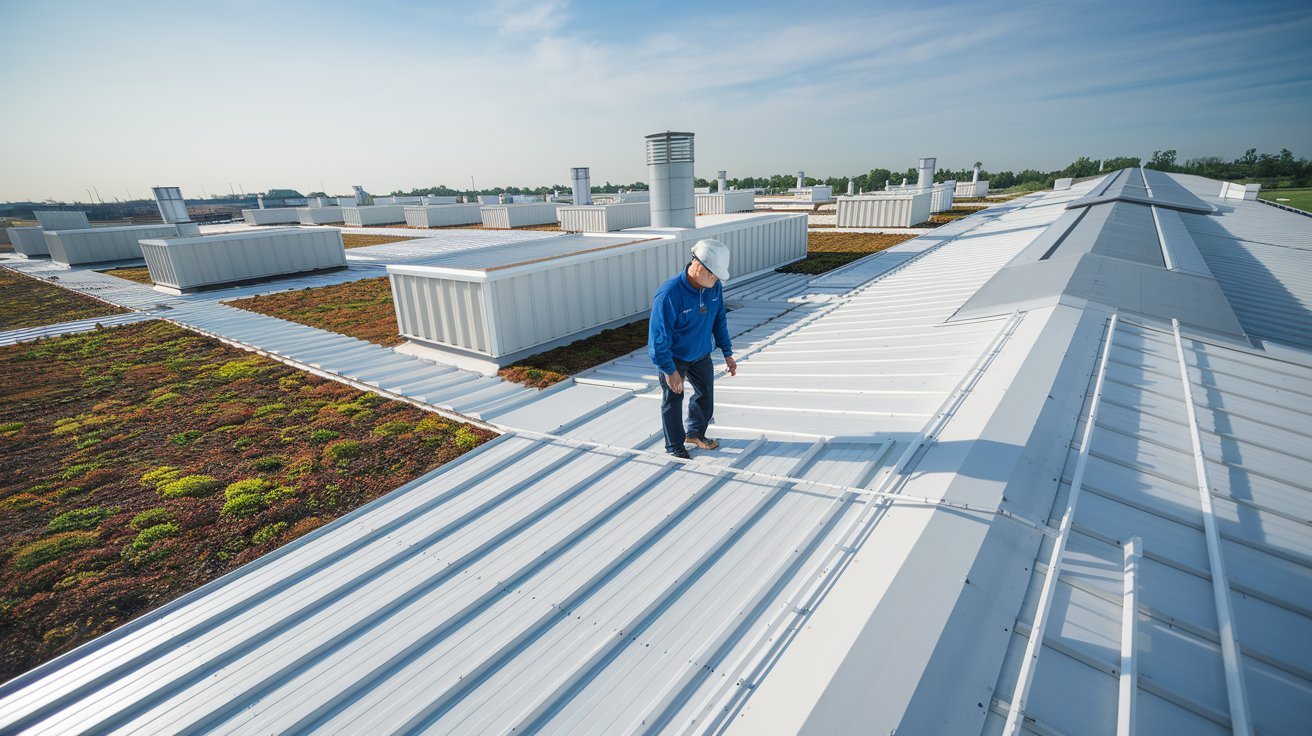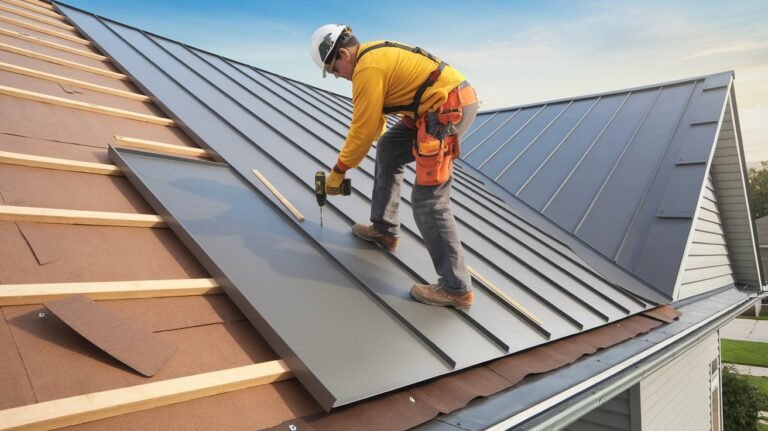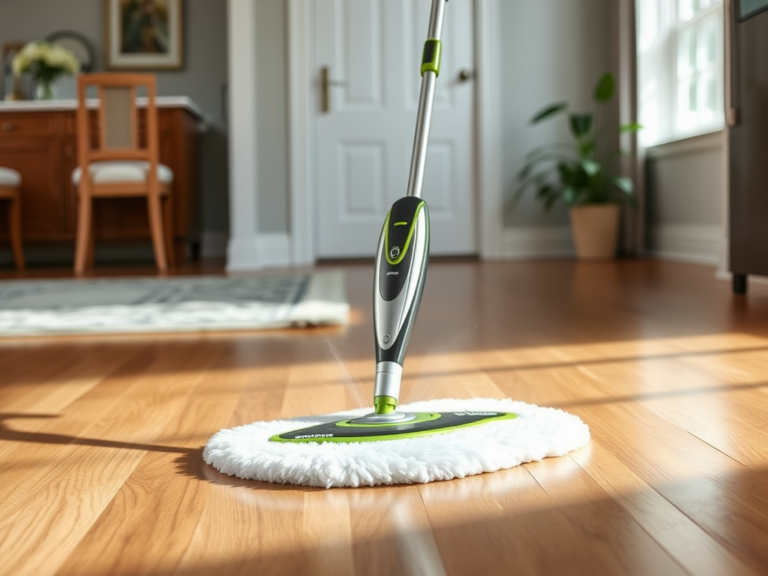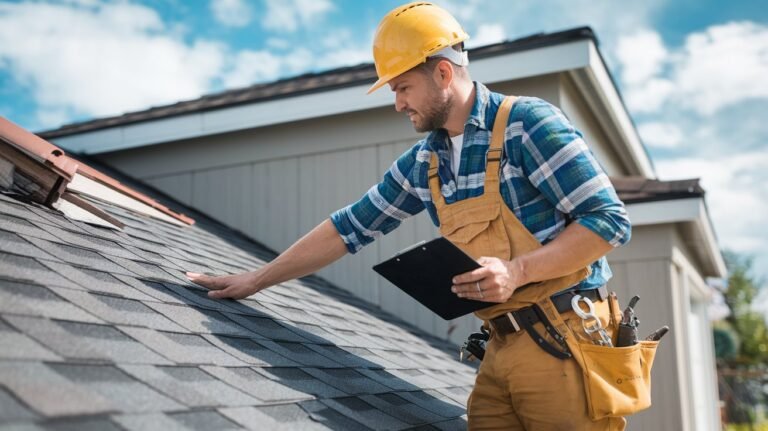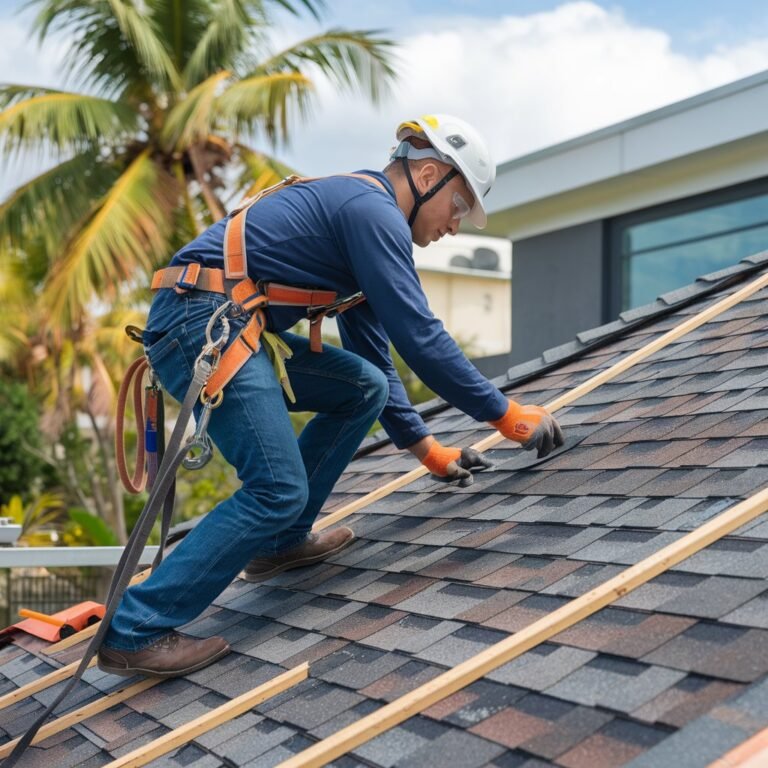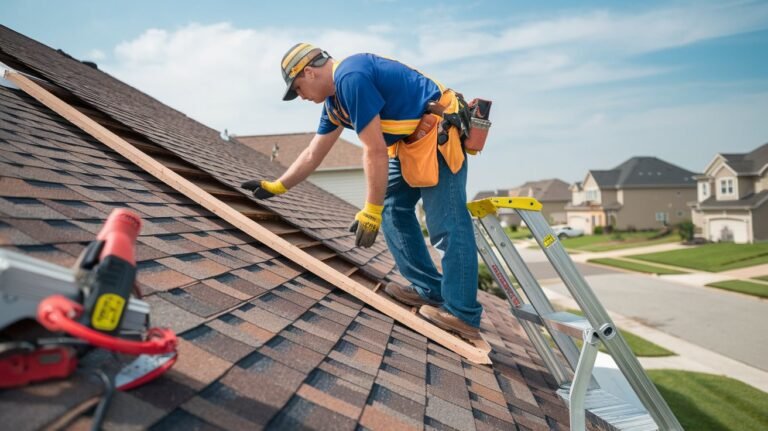Top-Rated Commercial Roofing | Durable, Affordable & Fast Service
Understanding Commercial Roofing: An Overview
Commercial roofing is a specialized field that deals with the installation, maintenance, and repair of roofs for businesses, warehouses, factories, and other large-scale structures. Unlike residential roofing, commercial roofing often involves complex designs, durable materials, and large-scale implementation. Ensuring the longevity and effectiveness of a commercial roof requires careful planning, expert installation, and regular maintenance.
Types of Commercial Roofing Systems
Commercial roofing systems come in various types, each designed to meet different business needs, budgets, and environmental conditions. Understanding the pros and cons of each roofing system can help business owners make informed decisions.
1. Built-Up Roofing (BUR)
Built-up roofing, commonly known as BUR, consists of multiple layers of bitumen and reinforcing fabrics. These layers create a strong, waterproof barrier that protects against harsh weather conditions. BUR roofs are known for their durability and cost-effectiveness, making them a preferred choice for commercial buildings with low-slope roofs.
2. Single-Ply Membrane Roofing
Single-ply membrane roofing is one of the most popular choices for commercial buildings. It includes materials such as TPO (Thermoplastic Polyolefin), PVC (Polyvinyl Chloride), and EPDM (Ethylene Propylene Diene Monomer). These roofing systems are lightweight, resistant to UV radiation, and provide excellent waterproofing. TPO and PVC membranes are energy-efficient, making them ideal for businesses looking to reduce their carbon footprint.
3. Metal Roofing
Metal roofing is widely used in commercial applications due to its durability, longevity, and resistance to extreme weather conditions. Metal roofs, made from aluminum, steel, or copper, can last up to 50 years or more with proper maintenance. They are also energy-efficient, reflecting sunlight and reducing cooling costs.
4. Modified Bitumen Roofing
Modified bitumen roofing is an evolution of the traditional BUR system, incorporating polymer-modified asphalt to enhance flexibility and durability. It is commonly installed using heat-welding, self-adhering sheets, or cold adhesives. This roofing type is preferred for its resistance to heavy foot traffic and extreme weather conditions.
5. Green Roofing Systems
Green roofing involves the use of vegetation and soil layers over a waterproof membrane. This eco-friendly roofing option provides insulation, improves air quality, and reduces urban heat islands. Many commercial buildings are now opting for green roofs as part of their sustainability initiatives.
Importance of Choosing the Right Commercial Roofing Material
Selecting the right roofing material for a commercial building is crucial for ensuring long-term performance and cost savings. The choice depends on factors such as climate, budget, building structure, and maintenance requirements. A well-chosen roofing system can provide insulation, reduce energy costs, and enhance the building’s overall value.
Commercial Roofing Installation Process
The installation of a commercial roof involves multiple steps that require expertise and precision. Here’s an overview of the typical process:
- Roof Inspection & Planning – Experts assess the existing roof structure, identify potential issues, and recommend the best roofing system.
- Material Selection – Based on budget and building needs, the appropriate roofing material is chosen.
- Surface Preparation – Old roofing materials are removed, and the surface is cleaned and prepared for installation.
- Roofing Installation – The selected roofing system is installed using industry-approved methods, ensuring waterproofing and durability.
- Final Inspection & Maintenance Plan – Once installed, the roof is inspected for quality assurance, and a maintenance plan is provided to prolong its lifespan.
Benefits of Hiring a Professional Commercial Roofing Contractor
A professional roofing contractor plays a crucial role in ensuring the successful installation and maintenance of a commercial roof. Here are some key benefits of hiring experts:
- Expertise & Experience: Professional roofers have extensive knowledge of various roofing systems and the best installation practices.
- Quality Materials: Reputable contractors use high-quality materials that enhance the durability of the roof.
- Safety Measures: Roofing projects involve risks, and experienced contractors follow strict safety protocols to prevent accidents.
- Cost-Effective Solutions: Professionals help businesses save money by providing durable solutions that minimize the need for frequent repairs.
- Warranty & Maintenance Plans: Many contractors offer warranties and maintenance plans to ensure long-term performance and protection.
Common Commercial Roofing Problems & Their Solutions
Over time, commercial roofs are exposed to harsh weather conditions, wear and tear, and structural issues. Here are some common problems and how they can be addressed:
1. Leaks & Water Ponding
Water pooling on a flat commercial roof can lead to leaks and structural damage. Regular inspections and proper drainage systems can prevent water accumulation.
2. Roof Shrinkage
Single-ply membrane roofs like EPDM can shrink over time, leading to cracks and leaks. Proper installation and regular maintenance can mitigate this issue.
3. Blow-Offs & Wind Damage
Strong winds can lift poorly installed roofing materials, causing damage. Ensuring a secure installation with reinforced fasteners can prevent blow-offs.
4. Punctures & Tears
Foot traffic and debris can cause punctures in roofing membranes. Installing walkway pads and conducting routine inspections can minimize damage.
5. Poor Installation
Substandard installation can lead to premature roofing failure. Always hire experienced and certified roofing contractors to avoid costly mistakes.
How to Extend the Lifespan of a Commercial Roof
Maintaining a commercial roof properly can significantly extend its lifespan. Here are some essential maintenance tips:
- Schedule Regular Inspections: Conduct routine inspections to detect issues early and prevent costly repairs.
- Clean Gutters & Drains: Clogged drainage systems can lead to water damage. Ensure gutters and drains are free from debris.
- Repair Damage Promptly: Address minor issues before they escalate into major problems.
- Apply Protective Coatings: Roof coatings can add an extra layer of protection against UV rays and weathering.
- Monitor Roof Traffic: Restrict unnecessary foot traffic on the roof to prevent punctures and wear.
Choosing the Best Commercial Roofing Contractor
Selecting the right roofing contractor is crucial for the success of your commercial roofing project. Here are some key factors to consider:
- License & Certification: Ensure the contractor is licensed, insured, and certified by relevant roofing associations.
- Experience & Portfolio: Look for a contractor with extensive experience and a proven track record.
- Customer Reviews & Testimonials: Check online reviews and testimonials to gauge customer satisfaction.
- Transparent Pricing: A reliable contractor provides clear pricing with no hidden costs.
- Warranty & After-Sales Service: Opt for contractors who offer warranties and ongoing maintenance services.
Conclusion
A well-installed and maintained commercial roofing system is essential for protecting a business investment. With various roofing options available, selecting the right material and hiring a professional contractor can ensure long-lasting durability and cost savings. Regular maintenance, timely repairs, and proper installation are the keys to maximizing the lifespan of a commercial roof. By choosing a top-rated commercial roofing service, businesses can enjoy a reliable, energy-efficient, and weather-resistant roofing solution for years to come.
Read Also Our This Post: How to Install Metal Roofing (Step-by-Step Guide for Beginners!)

